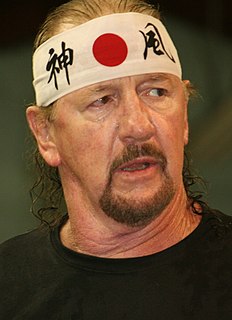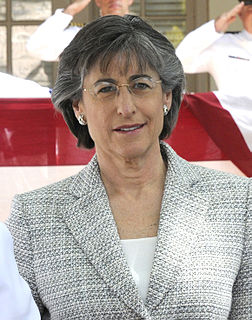A Quote by Jeb Hensarling
You've got Washington picking winners and losers. And so, all of a sudden, decisions are being made on what helps politicians, not what helps the economy. Some will call it socialism. Some will call it a command and control economy. Whatever it is, it's antithetical to the American experience.
Related Quotes
I call crony capitalism, where you take money from successful small businesses, spend it in Washington on favored industries, on favored individuals, picking winners and losers in the economy, that's not pro-growth economics. That's not entrepreneurial economics. That's not helping small businesses. That's cronyism, that's corporate welfare.
Having what I call crony capitalism, where you take money from successful small businesses, spend it in Washington on favored industries, on favored individuals, picking winners and losers in the economy, that's not pro-growth economics. That's not entrepreneurial economics. That's not helping small businesses. That's cronyism, that's corporate welfare.
There are winners and there are losers. And as much as we would like to help the losers, if we do it in the way that directs the limited capital of the society to support the low-productivity parts of the economy, it means that the rest of the economy - our overall standard of living - will not rise as much as it could.
The guys that go into the Hall of Fame are the winners, and the losers are the ones who put them in there, and I would like to see some of the great losers through the years be in the Hall of Fame. I know that that's probably impossible, but you've got to give those losers credit, they made the winners.
For the workers and their families, being able to bring home a living wage helps their families and, by extension, helps our economy. Seventy percent of our economy is consumer-based. We know that when lower- and middle-class families have money and disposable income, they spend it. That puts money back into the economy. It's a win-win for everybody: Not just for the individual, not just production at a specific company (like Nissan), but for the greater good.
Some call-in moderators are neutral and courteous. Then there's Rush Limbaugh, who is funny and pompous and a scapegoater and hatemonger. His popularity could cause you to draw some terrible conclusions about the state of mind of the American people. It helps to remember that Bill Cosby is popular, too.
The military has a huge role in the economy [of Pakistan] with big stakes and, as you say, it has constantly intervened to make sure that it keeps its hold on policy making. Well, I hope, and there seem to be some signs, that the military is taking a backseat, not really in the economy, but in some of the policy issues. If that can continue, which perhaps it will, this will be a positive development.
When you take away the subsistence economy, then your farm population is seriously exposed to the vagaries of the larger economy. As it used to be, the subsistence economy carried people through the hard times, and what you might call the housewife's economy of cream and eggs often held these farms and their families together.































